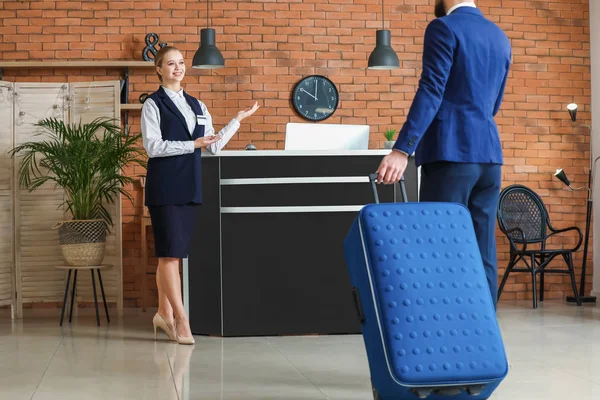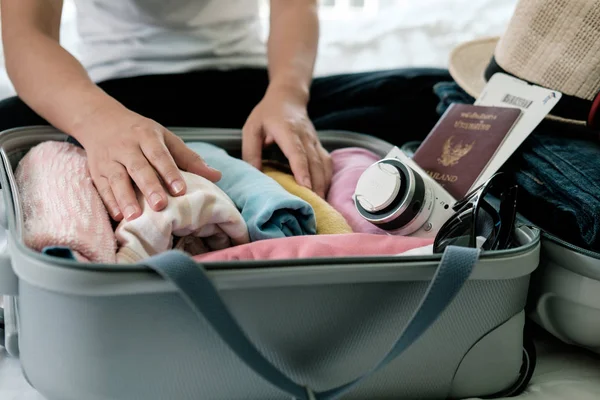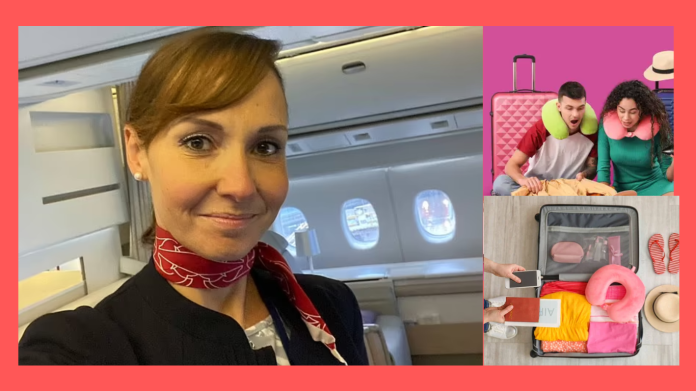- Flight Attendant’s Ultimate Packing Guide: Emilie Cooke-Martageix, a flight attendant shares her 16 years Packing Hacks that work by ensuring Smoother Journeys
Newsypeople – As summer vacation approaches, the time for packing is near. For many, this process can be challenging, often leading to mistakes that could have been avoided. Even seasoned travelers occasionally pack unnecessary items that won’t fit in an overhead bin.
To ease the burden, House of Fraser teamed up with Air France flight attendant Emilie Cooke-Martageix, who shared her expertise in suitcase management after 16 years in the industry. Discover her top tips below, including space-saving tricks and how to ensure you don’t forget anything essential, along with the pitfalls of using a hard-shell suitcase.
ALSO READ: Smart Travel Strategies: Ways To Get More Out Of Trip To A New Destination

Ultimate Packing Guide: Flight Attendant Shares 16 Years Packing Hacks That Work
For frequent flyers, Emilie recommends…
Preparing essential items in advance. ‘For those who travel frequently or have regular staycations, it’s beneficial to have a bag packed with travel essentials like power banks, plug adapters, toiletries, medications, and sunscreen. Keeping these items readily available can streamline your packing process.’ This strategy significantly reduces the likelihood of forgetting anything.
It’s advisable not to pack certain items together. Cabin pressure can cause liquids to leak, even if they’re under 100ml and sealed. To prevent spills, consider using solid bar versions of toiletries when possible. Additionally, keep important documents like passports in a clear ziplock bag to protect them from potential leaks.
Hard-shell suitcases are not as durable as fabric ones. Emilie warns that hard covers can easily crack under the pressure of other bags in the cargo hold. Instead, opt for a fabric suitcase, preferably in a bright color for easier identification during baggage claim. Avoid white as it tends to fade quickly. Also, prefer two-wheel spinners over four-wheel suitcases for durability and reliability.
When packing, aim for a capsule wardrobe approach. Pre-plan your outfits to ensure you only bring the essentials. Avoid duplicates and focus on versatile pieces like one pair of sneakers, jeans, a jumper or cardigan, a coat, a few T-shirts, and enough underwear. If you’re attending an event, include one nice dress. Opt for flat shoes as they’re practical and save space.
Be mindful of what food and drink you pack. While it’s tempting to bring local delicacies home, remember that certain items like cold meats, cheese, and fresh produce may not pass customs. Ensure any food or drink you pack is well-protected and free of strong odors to avoid attracting attention from customs officials.
Lastly, ensure your suitcase is lightweight enough for you to handle. Overpacking can lead to a bag that’s too heavy to lift into the overhead compartment, which is also difficult for airline staff to manage.
FAQs

Q1. Why is rolling clothes instead of folding better for packing?
A. Rolling clothes saves space and prevents wrinkles, making it a more efficient packing method.
Q2. How can compression sacks help with packing?
A.Compression sacks reduce the volume of clothes by up to 75%, making them ideal for packing bulky items.
Q3. What is a capsule wardrobe and why is it recommended for packing?
A. A capsule wardrobe consists of versatile pieces that can be mixed and matched to create various outfits, reducing the number of items needed to pack.
Q4. What are packing cubes and how do they benefit packing?
A. Packing cubes help organize clothes, prevent wrinkling, and make it easier to find items within your suitcase.
Q5. Why is packing a carry-on bag beneficial?
A. A carry-on bag allows you to bring essentials on board, reducing the amount of luggage you need to check and ensuring you have immediate access to necessary items.
Q6. How does using a packing list improve the packing process?
A. A packing list helps avoid forgetting important items and ensures you only pack what you need, making the packing process more efficient.
Q7. Why is it important to pack lighter items first in your suitcase?
A. Placing lighter items at the bottom of your suitcase helps balance the weight, making it easier to manage and less likely to cause issues with airline weight restrictions.
Q8. What is the purpose of using a garment bag for packing delicate items?
A. Garment bags protect delicate items like suits or dresses from wrinkles and damage during travel.
Q9. Why is it advisable to pack a small toiletry bag?
A. A small toiletry bag keeps all your toiletries organized and easily accessible during your trip, preventing spills and making it easier to find items.
Q10. What is the advantage of using ziplock bags for liquids?
A. Ziplock bags prevent spills and keep liquids organized, making it easier to manage and access them during travel.
Q11. Why are a travel pillow and eye mask considered essential items to pack?
A. These items enhance comfort during flights, especially for overnight travel, by providing support and blocking light.
Q12. What is the benefit of including a snack pack in your carry-on?
A. Having snacks and a water bottle in your carry-on ensures you stay hydrated and can avoid paying high prices for food and drinks at the airport.
Q13. Why is a power bank a valuable item to pack?
A. A power bank can be crucial for charging devices during travel, especially if you’re away from power outlets for extended periods.
Q14. What is the importance of packing a small first aid kit?
A. A first aid kit includes essential items like band-aids and pain relievers, which can be necessary for minor injuries or illnesses during travel.
Q15. Why is using a shoe bag beneficial for packing?
A. Shoe bags keep shoes separate from other items, preventing dirt and odors from spreading and keeping your suitcase cleaner.
Q16. What is the utility of packing a set of basic tools?
A. Basic tools like a screwdriver and scissors can be incredibly useful for minor repairs or adjustments during travel.



